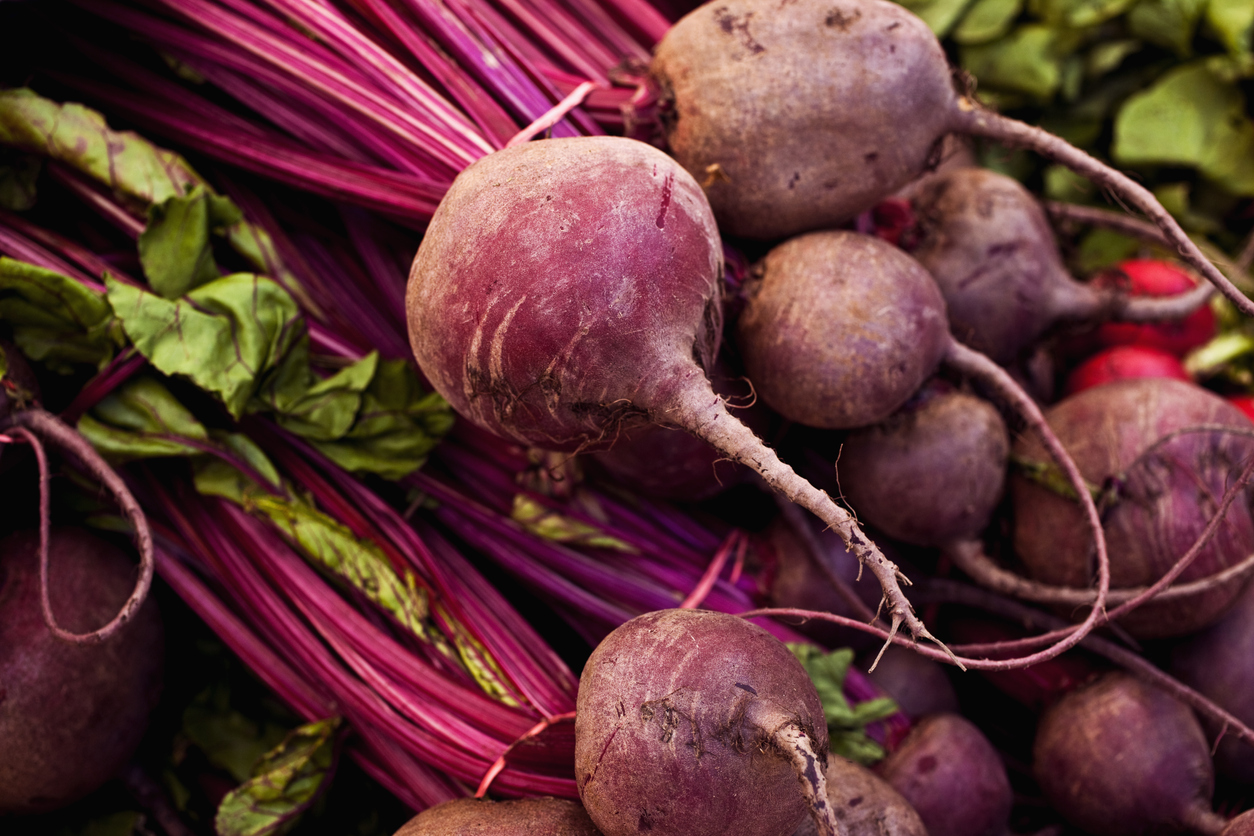When you’re sitting in front of the boob tube pondering how to improve your diet, you might consider consuming more foods like cucumbers, celery, or kale. You might even join a juice bar or start going to the gym again. When, in reality, all you need to do is change things up. Try something different. In this blog post, we explore a lesser-known superfood – beets! They may not stand out as vegetables that people eat daily like potatoes, beans, peas, or carrots. However, beets are commonly found in salad bars, and they add a brilliant purple color to any vegetable mix.
#1. Beets Have Natural Medicinal Properties.
Beets are grown in a form known as beetroot. We were surprised to learn that the earliest use of this root for natural medicinal purposes dates back to the ancient Romans. In the present era, researchers are studying how to use beetroot juice not just for its anti-inflammatory properties but to treat conditions such as hypertension, atherosclerosis, type 2 diabetes, and dementia. For example, when beetroot juice was used as a supplement or included with bread, it was found to reduce both systolic and diastolic blood pressure.
#2. Beets Contain Sources of Mega Nutrients.
Consumers are more familiar with beets because of their color. They are a natural source of food coloring because they have pigments known as betalains. However, beetroots are a root plant, making them an abundant source of phytochemical compounds, including ascorbic acid, carotenoids, phenolic acids, and flavonoid. Almost any common fruit or vegetable that you could eat will be rich in some nutrients and antioxidants, and, therefore, it’s mystifying that more Americans don’t follow a vegetarian or vegan diet.
- Ascorbic acid is a natural antioxidant, which protects cells from damage caused by free radicals in the air.
- Carotenoids such as lutein, lycopene, and beta-carotene are known to help decrease the risk of certain cancers and diseases of the eye.
- Phenolic acids are easily absorbed in the intestinal path and prevent cells from free radical damage. They also have anti-inflammatory properties.
- Flavonoids are antioxidants that reduce the risk of cancer, heart disease, asthma, and stroke.
#3. Beets Have Lots of Natural Color.
You can cut beets up and add them to a salad with other ingredients like boiled potatoes or fresh peas, carrots, and beans. Beets are also an attractive garnish or yummy when served on a bed of lettuce. To make a salad containing beets a little wetter, add a little bit of mayonnaise or plain yogurt and then the salad will take on a reddish purple hue, which makes the salad look moist and naturally tasty.
#4. Fresh Beets Are Sold in Bulk and Will Keep for Weeks.
When you look for beets at the grocery store, they won’t break the bank. You can buy them fresh for anywhere between $1.50 and $4.00 in assorted bags (usually by a predetermined weight) and this includes both organic and regular varieties. Fresh beets may or may not have the leafy part attached to the top.
#5. Beets Are Available in Frozen, Canned, or Pickled Varieties.
It’s easy to find this super root in cheaper forms. Just visit the dry food or sundry section and select beets in small or large cans or pickled in jars. Beets can keep for over a year when preserved in a solution like vinegar.
Whenever you are looking to improve your diet, you aren’t going to have to drive out to the farmer’s market or organic farm and pay top dollar for specially grown foods. Just visit the organic section of any supermarket and purchase foods like beetroots or beetroot juice and eat them in modest amounts as part of a regular diet.




